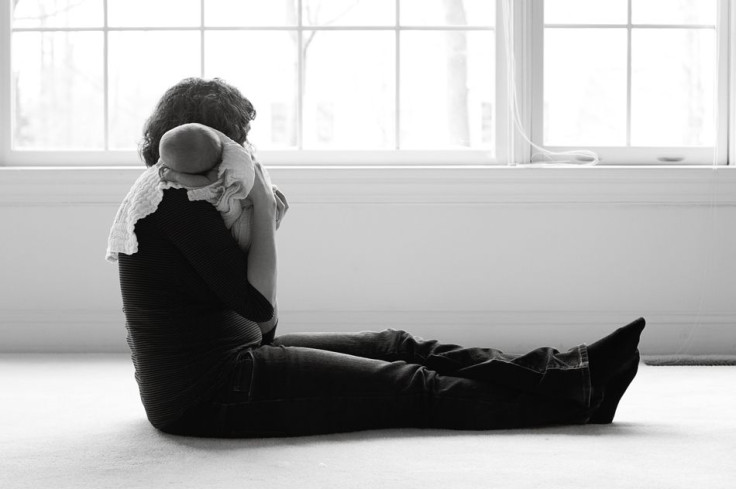What To Expect When You're Expecting: Many New Moms Aren't Receiving Important Advice From Their Doctors

Many new mothers are not receiving important advice from their physicians on topics like breastfeeding and sleep position, according to a new study. Though health care groups have issued guidelines and recommendations on almost all aspects of infant care, it seems like these guidelines aren’t being verbalized to many new moms by their physicians.
Funded by the National Institutes of Health, the study surveyed over 1,000 new mothers on the advice they received from their health care providers about infant care. About 20 percent of the mothers said they did not receive information from their doctors about the current recommendations for infant sleep positions — putting the baby on their back, which has been known to reduce the risk of Sudden Infant Death Syndrome (SIDS) — or breastfeeding. More than 50 percent of the mothers said they received no advice on where the infant should sleep. Currently, the recommendation is for an infant to room share, but not bed share, with parents.
The study was conducted by researchers at Boston Medical Center, Boston University, and Yale University in New Haven.
"Earlier studies have shown that new mothers listen to their physicians," said Marian Willinger, Ph.D.., of the Pregnancy and Perinatology Branch at NIH's Eunice Kennedy Shriver National Institute of Child Health and Human Development (NICHD), in a press release. "This survey shows that physicians have an opportunity to provide new mothers with much-needed advice on how to improve infant health and even save infant lives."
Interestingly, African American and Hispanic women were more likely to get advice than white women. First time mothers were also more likely to get advice than women who were on their second or third child.
"As a physician, these findings made me stop and really think about how we communicate important information to new parents," said the study's first author, Dr. Staci R. Eisenberg in a press release. Eisenberg is a pediatrician at Boston Medical Center. "We may need to be clearer and more specific in telling new mothers about safe sleep recommendations. From a public health perspective, there is a real opportunity to engage families and the media to promote infant health."
When advice was given, however, it did tend to agree with the guidelines given by groups such as the American Academy of Pediatrics (AAP). When it came to sleep position, 25 percent of the advice given did not align with recommendations, and 10 to 15 percent of the advice on breastfeeding was not consistent with recommendations.
According to the study authors, physicians and others in the position to give advice to mothers may choose not to do so either because they disagree with the current recommendation, or because they do not know about them. Also, they may refrain from giving advice because the recommendation is controversial and may lead to a long conversation that would become a problem during busy office hours.
Source: Eisenberg S, et al. Many new mothers report no physician advice on infant sleep position, breastfeeding. Pediatrics. 2015.



























